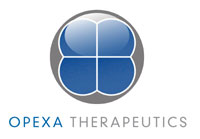Top-line data from the Phase IIb TERMS study demonstrated a positive trend in the reduction in annualized relapse rate (ARR) for patients treated with Tovaxin as compared to placebo:
- The ARR for Tovaxin-treated patients was 0.214 as compared to 0.339 for placebo-treated patients. Despite the low relapse rate in the placebo arm, this still represented a 37 percent decrease in ARR for Tovaxin as compared to placebo in the general population.
- For patients who had an ARR > 1 in the year prior to the study, Tovaxin demonstrated a 55 percent reduction in ARR as compared to placebo.
- The ARR observed in the Tovaxin treatment is at the lower end of the spectrum of documented relapse rates demonstrated in controlled two-year clinical studies of currently marketed products (range from 0.2 to 0.9).
- Tovaxin was safe and well tolerated with no serious adverse events related to Tovaxin treatment. Most common adverse event was mild injection site reaction.
- Only 18 patients (12 percent) withdrew from the study prior to completion. The dropout percentage was identical for the Tovaxin and placebo arms of the study, providing further evidence of Tovaxin s excellent safety and tolerability.
The TERMS study was a Phase IIb multi-center, randomized, double blind, placebo-controlled trial in 150 patients with Relapsing-Remitting Multiple Sclerosis (RRMS) or high risk Clinically Isolated Syndrome (CIS). The study involves 2:1 randomization with 100 patients receiving Tovaxin and 50 receiving placebo. According to the study protocol, patients received a total of five subcutaneous injections at weeks 0, 4, 8, 12 and 24.
Additionally, Opexa is conducting a one-year open-label extension trial of the TERMS study named OLETERMS. Approximately 90 percent of patients in the TERMS study have opted to enroll in the OLETERMS trial.
Phase I/II Studies
Tovaxin has been shown to be well tolerated with no serious adverse events related to Tovaxin reported in three Phase I/II clinical studies. Clinical results of the studies include:
Phase I/II Two-Year Extension and Retreatment Studies (22 patients with RRMS or SPMS)
- 73 percent of all patients remained relapse free at two years
- 86 percent of patients showed no worsening of disease (27 percent showed sustained improvement) at two years
- 82 percent reduction in annualized relapse rate (ARR) compared to baseline over two years
- 100 percent reduction in ARR with optimal dose
- 90 percent reduction in ARR at one year compared to baseline
- Reduction in myelin-reactive T-cell counts
- 92 percent reduction in ARR at one year compared to baseline

